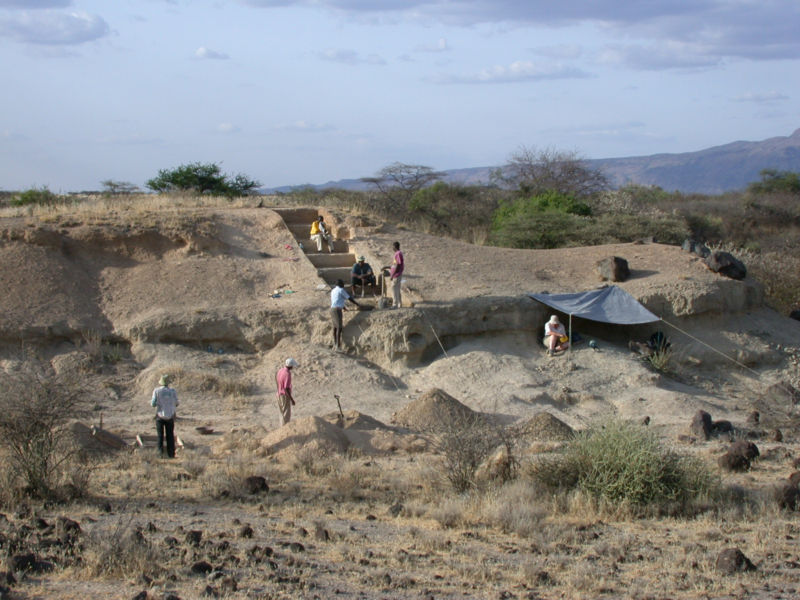Unstable climate forced early humans to be more social and creative

Enlarge / images from the prehistoric site of Olorgesailie, Kenya (credit: Human Origins Program, Smithsonian)
Three new studies suggest that early humans in East Africa started doing much more complex things-making more sophisticated tools, trading with neighboring groups for better stone, and maybe even using symbols to communicate-in order to survive rapid climate shifts 320,000 ago. Those findings may support the theory that bigger social networks, more complicated tool-making technology, and symbolic thinking helped drive early humans to evolve larger brains by the Middle Pleistocene, around 200,000 years ago.
But that kind of development doesn't just happen. Brains are expensive organs to maintain, in terms of the energy required to keep them nourished and oxygenated, and that size upgrade would have come at a cost. To succeed, bigger brains would have to offer enough of a survival advantage to outweigh the extra burdens they entail.
For that to be the case, humans' ability to survive and reproduce would have to depend on the things we might need such a big brain for, like communicating with lots of other humans in more complex ways or making and using more complex tools. That's why many paleoanthropologists have suggested that the kinds of cultural developments we see in Middle Stone Age sites in East Africa could have been responsible. Cultural development, in other words, drove the physical evolution of our brains in a really major way.
Read 20 remaining paragraphs | Comments